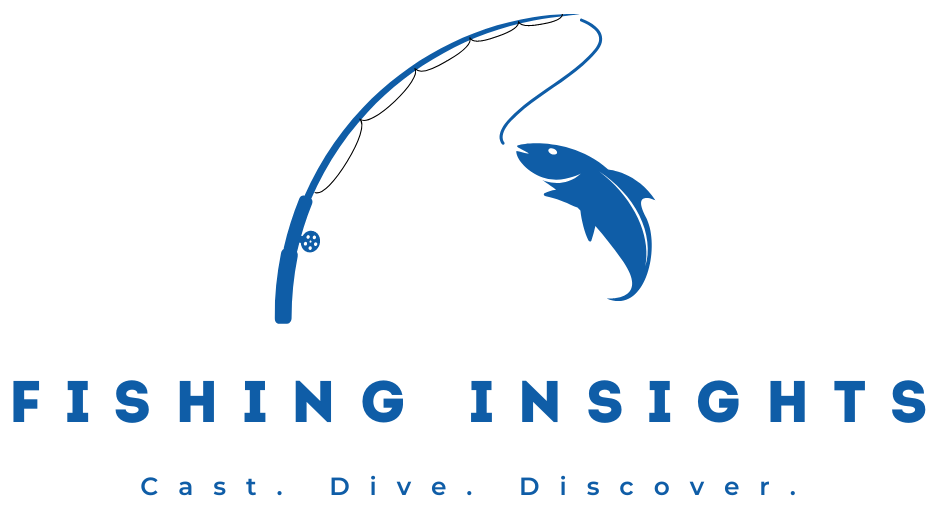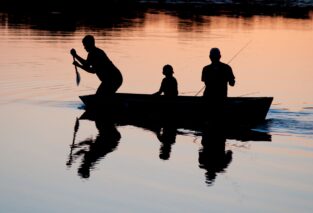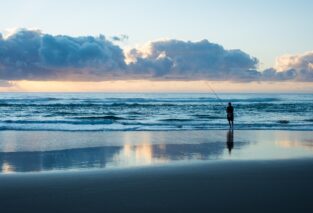Imagine you’ve been eagerly looking forward to your upcoming multi-day fishing trip. You can already picture yourself out on the open water, reeling in the biggest catch of your life. But before you embark on this adventure, it’s important to make sure you have everything you need to ensure a successful and enjoyable trip. This article provides you with a comprehensive checklist to help you prepare for multi-day fishing trips. From essential equipment and safety gear to food and accommodations, we’ve got you covered. So grab your fishing rod and get ready to cross off each item on this checklist, because your next fishing adventure awaits!
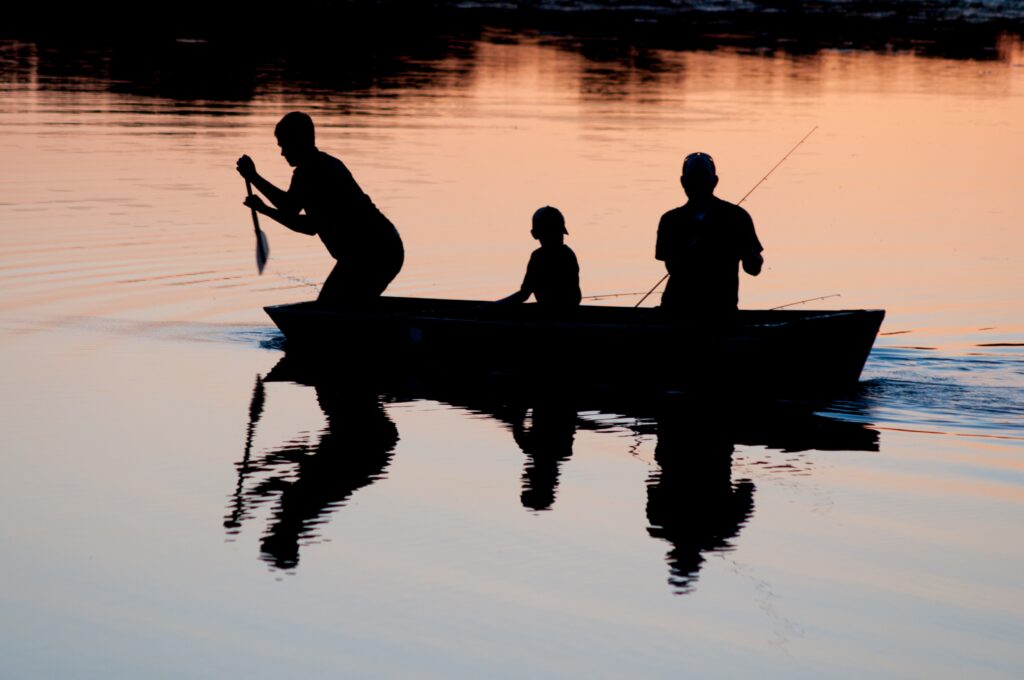
Pre-Trip Planning
Determine the Location
Before embarking on a multi-day fishing trip, the first step is to determine where you want to go. Research different fishing destinations that appeal to you, taking into consideration factors such as accessibility, types of fish available, and the overall fishing experience. Whether you prefer freshwater or saltwater fishing, there are countless options to choose from. Consider factors such as fishing seasons, peak times for certain species, and any restrictions or regulations in the area. Take your time to find the perfect location for your fishing adventure.
Check the Weather Forecast
Once you have chosen your fishing destination, it’s important to check the weather forecast for the dates of your trip. Weather conditions can greatly affect fishing success and your overall safety and comfort. Keep an eye out for any storm systems, heavy rainfall, or extreme temperatures that could impact your trip. Take note of any precautions you may need to take and be prepared to adjust your plans if necessary. Remember to pack appropriate clothing and gear based on the expected weather conditions.
Research Fishing Regulations
Before heading out on your fishing trip, it is crucial to familiarize yourself with the fishing regulations specific to the area you will be visiting. Different regions have their own set of rules and limitations when it comes to fishing, including bag limits, size restrictions, and specific fishing methods allowed. Researching and understanding these regulations will ensure that you are fishing within the law and help protect the fish population for future generations. Make sure to get the necessary permits and licenses in advance to avoid any legal issues during your trip.
Create an Itinerary
To make the most of your multi-day fishing trip, it is beneficial to create a detailed itinerary. Determine how many days you will be fishing and plan out your daily activities, taking into account travel time, fishing locations, and any other activities you may want to include. Research the best fishing spots in the area and plan your itinerary accordingly. However, it is also essential to be flexible and allow for spontaneous changes to accommodate weather conditions or unexpected opportunities that may arise during your trip.
Make Travel Arrangements
Once you have finalized your fishing destination and itinerary, it’s time to make the necessary travel arrangements. Book your transportation, whether it’s by road, air, or water, well in advance to secure the best deals and availability. If you plan on staying at a fishing lodge or campsite, make your reservations early to ensure you have a place to stay. Consider packing your fishing gear in a way that allows for easy transport, such as using travel rods and compact tackle boxes. Don’t forget to pack any necessary travel documents and identification, such as passports or fishing licenses.
Essential Fishing Gear
Fishing Rods and Reels
When it comes to essential fishing gear, having the right fishing rods and reels is crucial. Choose rods and reels that are suitable for the type of fishing you will be doing and the species you are targeting. Consider factors such as the rod’s length, action, and power, as well as the reel’s size, gear ratio, and drag system. It is also recommended to bring backup rods and reels in case of any malfunctions or emergencies.
Fishing Lines and Leaders
Selecting the right fishing lines and leaders is key to ensuring a successful fishing trip. Different fishing scenarios require different types of lines, such as monofilament, braided, or fluorocarbon lines. Consider the fishing conditions, water clarity, and target species when choosing your lines. Leaders are also essential to prevent fish from biting through your line or from breaking off during a fight. Choose leaders made of durable and abrasion-resistant materials for added strength and reliability.
Hooks and Lures
A well-stocked tackle box includes a variety of hooks and lures to attract and catch fish. Research the preferred hook sizes and types for the species you are targeting, as different fish have different mouth shapes and feeding habits. Lures come in various shapes, sizes, and colors, each designed to mimic specific prey and attract fish. Experiment with different lures to find what works best in the fishing location you have chosen.
Fishing Tackle Box
Organizing and storing your fishing gear is made easier with a tackle box. This handy tool allows you to keep your hooks, lures, weights, and other small items neatly organized and easily accessible. Choose a tackle box with multiple compartments and adjustable dividers to cater to your specific needs. Consider the size and portability of the tackle box, especially if you will be traveling to different fishing locations during your trip.
Fishing Nets and Gaffs
Having a fishing net or gaff is essential for landing and safely handling fish. Nets are useful for scooping up fish from the water, while gaffs are used to secure larger fish and bring them onboard. Consider the size and material of the net or gaff to ensure it is suitable for the type and size of fish you will be targeting. Make sure the net or gaff is sturdy and has a comfortable grip for ease of use.
Fishing Bait and Burley
To attract fish, it is important to have the right bait and burley. Research the preferred bait for the species you are targeting and have a variety of options available, such as live bait, frozen bait, or artificial bait. Burley, or chum, is an additional attractant that releases scents and food particles into the water to lure fish to your fishing spot. Carry a sufficient amount of bait and burley to last your entire fishing trip.
Fishing Tools and Accessories
In addition to rods, reels, and tackle, there are various fishing tools and accessories that can greatly enhance your fishing experience. These may include pliers, scissors, line cutters, hook removers, fish grippers, and knot-tying tools. These tools can be invaluable when it comes to handling fish, changing lures, or making adjustments to your fishing setup. Don’t forget to pack these handy tools to ensure you are fully equipped for any fishing situation.
Fishing Safety Equipment
Safety should always be a top priority when engaging in any outdoor activity, including fishing. It is essential to have the necessary safety equipment on hand during your fishing trip. Items such as life jackets, personal floatation devices (PFDs), and throwable flotation devices should be easily accessible in case of emergencies or if you are fishing from a boat. Carry a first aid kit with basic medical supplies to tend to any minor injuries that may occur.
Fishing Filleting and Cleaning Tools
If you plan on keeping any fish for consumption, it is important to have the proper filleting and cleaning tools. These tools may include fillet knives, cutting boards, scalers, and gutting tools. Make sure your filleting tools are sharp and in good condition to ensure clean and efficient filleting. Remember to dispose of fish waste properly and follow any regulations regarding the cleaning and disposal of fish remains.
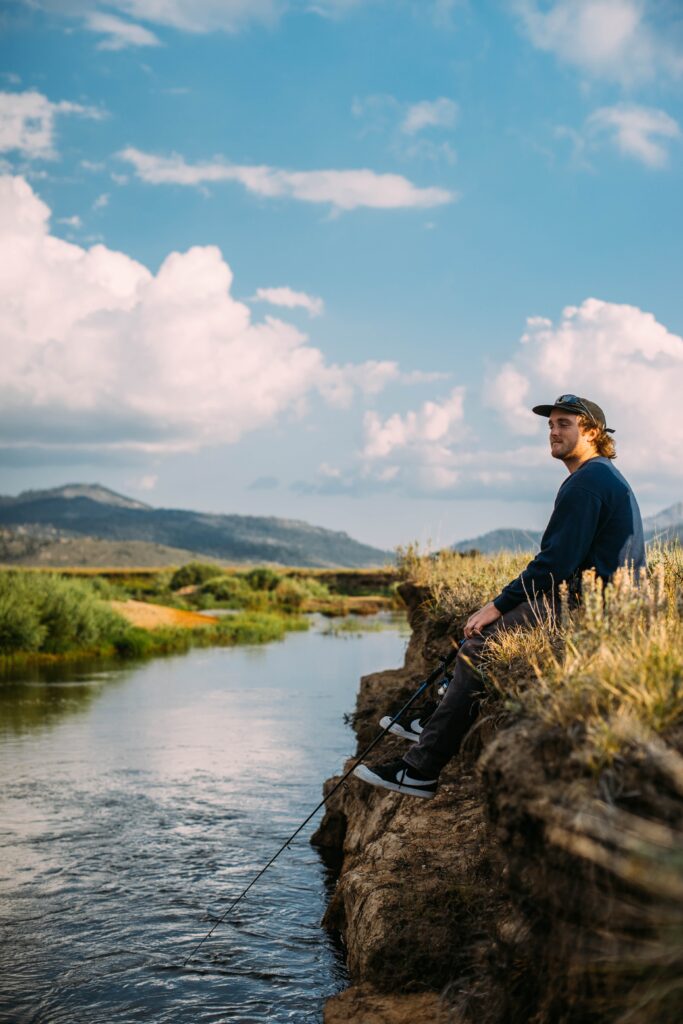
Camping and Shelter
Suitable Tents or Camper
If you plan on camping during your fishing trip, ensuring you have suitable shelter is essential for a comfortable and enjoyable experience. Choose a tent or camper that is appropriate for the number of people in your group and the expected weather conditions. Consider factors such as size, durability, ease of setup, and additional features like rainfly, mesh panels for ventilation, and storage pockets. Test your tent or camper before your trip to ensure it is in good condition and fully functional.
Sleeping Bags and Pillows
A good night’s sleep is crucial when embarking on a multi-day fishing trip. Invest in high-quality sleeping bags that provide adequate warmth and comfort. Choose sleeping bags that are suitable for the expected temperatures, considering factors such as insulation, fill material, and temperature rating. Don’t forget to pack pillows or inflatable camping pillows to enhance your sleeping experience.
Sleeping Pads or Air Mattresses
For added comfort and insulation, consider using sleeping pads or air mattresses. These provide cushioning and insulation from the cold ground, helping you sleep better and wake up well-rested. Sleeping pads are lightweight and easy to pack, while air mattresses offer a more luxurious sleeping experience. Choose the option that suits your preferences and the available space in your camping setup.
Camp Chairs and Tables
Having comfortable seating and a suitable table setup can greatly enhance your camping experience. Invest in sturdy and lightweight camp chairs that are easy to fold and transport. Look for chairs with added features such as cup holders or side pockets for convenience. A portable camping table provides a convenient surface for preparing food, dining, or playing games. Consider the size and durability of the table, as well as any additional features like adjustable legs or built-in storage.
Cooking Stove and Utensils
Preparing meals while camping requires the right cooking stove and utensils. Portable camping stoves come in various sizes and fuel types, such as propane or butane. Choose a stove that suits your cooking needs and is easy to use and maintain. Pack essential cooking utensils such as pots, pans, spatulas, and utensil sets. Don’t forget to bring fuel canisters or extra fuel for your stove.
Portable Fridge or Cooler
To keep your food and beverages fresh during your fishing trip, consider investing in a portable fridge or cooler. Depending on the duration of your trip and the availability of ice, choose a cooler that meets your cooling needs. Portable fridges can also be a great option if you have access to electricity or a portable power source. Make sure to pack enough ice or cooling packs to keep your perishable items fresh.
Lighting Equipment
Proper lighting is essential for navigating campsites, preparing meals, and enjoying leisure time during the evenings. Pack reliable lighting equipment such as headlamps, lanterns, or portable LED lights. Consider the brightness, battery life, and portability of the lighting options. It is also advisable to bring extra batteries or a portable power source to ensure your lighting equipment stays functional throughout your fishing trip.
Insect Repellent and Sunscreen
Protecting yourself from insects and UV rays is crucial for a comfortable and safe fishing trip. Pack insect repellent to ward off mosquitoes, ticks, and other biting insects that may inhabit the fishing location. Choose a repellent with an appropriate concentration of active ingredients for the best protection. Sunscreen with a high SPF rating is necessary to protect your skin from harmful UV rays. Apply sunscreen generously and frequently, especially when fishing in sunny or tropical locations.
First Aid Kit
Accidents and minor injuries can happen during any outdoor activity, including fishing. It is essential to have a well-stocked first aid kit to handle any emergencies or medical issues that may arise. Pack basic medical supplies such as bandages, adhesive tape, antiseptic ointment, pain relievers, and any necessary personal medications. Familiarize yourself with the contents of the first aid kit and how to use them correctly.
Camping Toiletries
Maintaining personal hygiene during a multi-day fishing trip is essential for your comfort and well-being. Pack toiletries such as toothbrushes, toothpaste, soap, shampoo, and toilet paper. Consider any additional personal care items you may need, such as feminine hygiene products or prescription medications. It is also advisable to pack biodegradable soap and hand sanitizers to minimize harm to the environment.
Food and Water
Meal Planning and Preparation
Proper meal planning and preparation are crucial for a successful fishing trip, especially when camping or in remote locations with limited food options. Plan your meals in advance, taking into consideration nutritional needs, dietary restrictions, and the availability of ingredients. Opt for meals that are easy to prepare and require minimal cooking equipment. Consider packing pre-chopped ingredients, pre-marinated meats, or dehydrated meals to save time and minimize food waste.
Non-Perishable Food Items
When planning meals for a multi-day fishing trip, it is important to include non-perishable food items that can last throughout your trip. These may include canned goods, dry pasta, rice, cereal, energy bars, and snacks with a long shelf life. Make sure to check the expiration dates and pack enough non-perishable food to sustain your energy levels during your fishing adventures.
Fresh Food and Ingredients
While non-perishable food items are convenient, it is also nice to have fresh food and ingredients during your fishing trip. Consider packing perishable items such as fruits, vegetables, eggs, and meats in a portable fridge or cooler with sufficient ice or cooling packs. Plan your meals accordingly to use perishable items first before consuming non-perishable options.
Snacks and Energy Bars
During long days of fishing, having snacks and energy bars on hand is essential to keep your energy levels up. Choose nutritious and high-energy snacks such as nuts, dried fruits, granola bars, and trail mix. These snacks provide quick and convenient sources of energy throughout the day, without the need for extensive preparation.
Clean Water Supply
Staying hydrated is crucial during any outdoor activity, especially when spending long hours fishing under the sun. Pack enough clean water to last your entire trip, taking into account the amount of drinking water needed and water for cooking and washing. It is advisable to pack a gallon of water per person per day, or more if the weather conditions are particularly hot or if strenuous activities are planned.
Water Filtration System or Tablets
In case you run out of clean water during your fishing trip, it is essential to have a backup plan for purifying water from natural sources. A water filtration system or water purification tablets can help remove harmful bacteria, viruses, and parasites from untreated water. These portable systems or tablets provide a convenient and reliable way to ensure access to safe drinking water in emergency situations.
Hydration Packs or Bottles
To stay hydrated throughout your fishing adventures, consider using hydration packs or bottles. Hydration packs, or water bladder backpacks, allow you to carry sufficient water on your back while keeping your hands free. Hydration bottles come with built-in straw or nozzle systems, making it easy to drink water on the go. Choose the option that suits your preferences and the amount of water you plan on consuming throughout the day.

Clothing and Personal Items
Weather-Appropriate Clothing
Choosing the right clothing for your fishing trip is essential for your comfort and protection from the elements. Pack clothing items suitable for the expected weather conditions, including a mix of lightweight and breathable options for hot weather, as well as layers for cooler temperatures. Consider packing items such as fishing shirts, long-sleeved shirts, quick-drying pants, shorts, waterproof jackets, and hats for sun protection.
Hiking Boots or Water Shoes
Investing in a pair of comfortable and supportive footwear is crucial for a multi-day fishing trip. Consider the terrain and choose hiking boots with good traction if you anticipate hiking to fishing spots. If you plan on fishing from the shore or in shallow waters, water shoes can provide the necessary protection and grip while allowing your feet to breathe and dry quickly.
Extra Socks and Undergarments
Having extra socks and undergarments is important to keep your feet comfortable and prevent issues such as blisters or fungal infections. Pack socks made of quick-drying and moisture-wicking materials to keep your feet dry and odor-free. Consider packing extra undergarments to ensure cleanliness and freshness throughout your fishing trip.
Hats and Sunglasses
Protecting your head and eyes from the sun’s harmful rays is essential during a fishing trip. Pack a wide-brimmed hat or a fishing cap to shield your face and neck from direct sunlight. Sunglasses with UV protection are also crucial to protect your eyes from harmful UV rays and glare. Choose polarized sunglasses that reduce glare from the water, allowing for better visibility and reducing eye strain.
Rain Gear and Waterproof Bags
Being prepared for unexpected rain showers is important to keep you dry and comfortable during your fishing trip. Pack a lightweight and waterproof rain jacket or poncho to protect yourself from rain or sudden changes in weather. Consider packing waterproof bags or dry sacks to keep your clothing, gear, and personal items dry, especially if you plan on fishing in wet or rainy conditions.
Personal Hygiene Products
Maintaining personal hygiene during a multi-day fishing trip is important for your comfort and well-being. Pack essentials such as toothbrushes, toothpaste, soap, shampoo, and deodorant. Consider any additional personal care items you may need, such as feminine hygiene products or shaving supplies. Choose travel-sized or sample-sized products to save space in your camping or travel bag.
Medications and Prescriptions
If you require any medications or prescriptions, make sure to pack an adequate supply for the duration of your fishing trip. Keep medications in a waterproof container or bag to protect them from moisture or accidental splashes. It is also a good idea to bring a copy of any prescriptions or important medical documents, especially if you are traveling to a different location.
Personal Documents and ID
Don’t forget to bring relevant personal documents and identification during your fishing trip. These may include your fishing license, driver’s license, passport (if necessary), health insurance information, and emergency contact numbers. Keep these documents in a secure and waterproof container to ensure their safety and accessibility whenever needed.
Fishing Licenses and Permits
Research Fishing License Requirements
Before embarking on your fishing trip, it is important to research the fishing license requirements for the area you will be fishing in. Each region has its own rules and regulations regarding fishing licenses, including different types of licenses for residents and non-residents, various fishing zones, and specific fishing seasons. Familiarize yourself with the requirements and restrictions to ensure you are fishing legally and responsibly.
Obtain the Necessary Licenses
Once you have determined the fishing license requirements, make sure to obtain the necessary fishing licenses before your trip. Research the options for obtaining licenses, whether it’s online, through local tackle shops, or at government offices. Consider any associated fees and be prepared to provide identification and other relevant information when applying. Keep your fishing licenses safely stored and easily accessible during your fishing trip.
Understand Fishing Limitations
In addition to having the appropriate fishing licenses, it is important to understand the fishing limitations and regulations specific to the area you will be fishing in. Each region may have different bag limits, size restrictions, or catch-and-release policies for various fish species. Research these limitations and make sure to adhere to them to promote sustainable fishing practices and protect the fish populations.
Pack Fishing Licenses and Permits
To avoid any legal issues or penalties, always carry your fishing licenses and permits with you while fishing. Keep them in a secure and waterproof container, such as a Ziploc bag or a document organizer. Make sure your fishing licenses are easily accessible so that you can present them if requested by authorities.
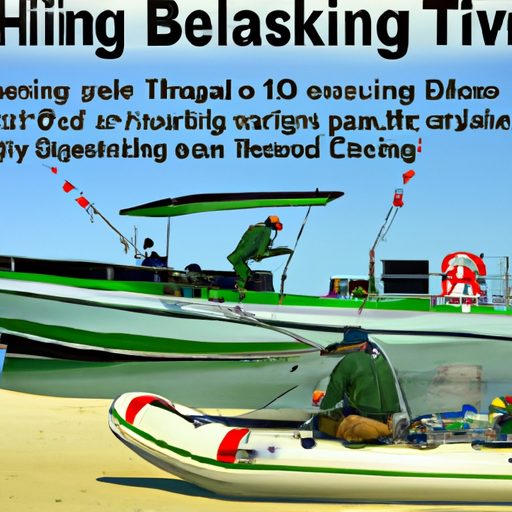
Communication and Navigation
Cell Phone and Charger
Having a functioning cell phone during your fishing trip is essential for communication and emergency purposes. Make sure to pack a fully charged cell phone and bring a portable charger or power bank to ensure you have a backup power source. Research the cell phone coverage and network availability in the area you will be fishing in to manage your expectations regarding reception.
Two-Way Radios
If you are fishing in a group or plan on splitting up, two-way radios can be useful for communication between fishing partners. These radios allow for quick and easy communication, even in areas with limited cell phone reception. Make sure to test the range and functionality of the radios before your trip to ensure they are in working condition.
GPS or Navigation Device
Navigating unfamiliar fishing locations or finding your way back to camp can be challenging without proper navigation tools. Consider bringing a GPS device or a smartphone with GPS capabilities to help you navigate. Download offline maps or fishing apps with GPS functionality to access maps and fishing hotspots even without cell phone reception. Familiarize yourself with the navigation features and ensure your device is fully charged.
Maps and Compass
In addition to digital navigation tools, it is always a good idea to have physical maps and a compass as backup. Pack detailed maps of the fishing locations and surrounding areas to help with orientation and navigation. Learn basic compass navigation skills to ensure you can find your way if electronic devices fail or run out of battery. Keep maps and the compass in a waterproof and easily accessible container.
Safety and Emergency Preparedness
Personal Floatation Devices (PFDs)
Ensuring your safety while fishing in or near bodies of water is of utmost importance. Pack personal floatation devices (PFDs) such as life jackets or inflatable vests to provide flotation and aid in water safety. Make sure the PFDs are appropriate for the anticipated water conditions, are in good condition, and fit properly. Wear your PFDs at all times when fishing from a boat or in areas with a higher risk of accidents.
Emergency Flares and Whistle
In case of emergencies or distress signals, having emergency flares and a whistle can attract attention and help with rescue efforts. Pack a set of emergency flares in a waterproof container and carry a whistle on your person or attached to your PFD. Familiarize yourself with how to use flares and a whistle correctly and responsibly.
Emergency Blanket and Fire Starter
Having emergency items such as a thermal emergency blanket and a fire starter can be crucial in survival situations or unexpected overnight stays. Emergency blankets provide insulation and warmth when exposed to cold and wet conditions. Pack a fire starter, such as waterproof matches or a fire steel, to help start a fire for warmth, cooking, or signaling purposes.
Personal Locator Beacon (PLB)
A personal locator beacon (PLB) is a device that can be crucial in emergency situations where immediate assistance is needed. These devices use satellite technology to transmit distress signals to search and rescue authorities, enabling them to pinpoint your location and provide timely assistance. Consider investing in a PLB and register it with the appropriate authorities before your fishing trip.
First Aid Kit and Medications
Having a comprehensive first aid kit is essential for addressing minor injuries and medical issues that may occur during your fishing trip. Pack bandages, antiseptics, pain relievers, and any necessary personal medications. Make sure to replenish any used or expired items in your first aid kit before each trip. Familiarize yourself with the contents of the kit and consider taking a first aid and CPR course to enhance your preparedness.
Emergency Contact Information
Having a list of emergency contact information is crucial in case of unexpected situations or emergencies. Write down important phone numbers, including local emergency services, park rangers, and family members or friends who should be contacted in case of emergency. Keep this list easily accessible, either on your phone or in a waterproof container with your other essential documents.
Understand the Emergency Procedures
Before your fishing trip, it is important to familiarize yourself with the emergency procedures specific to the area you will be fishing in. Research the rules and guidelines set by park authorities or local fishing organizations. Understand what to do in case of emergencies, such as severe weather, accidents, or encounters with wildlife. Being prepared and knowledgeable can greatly assist in maintaining your safety and the safety of others.
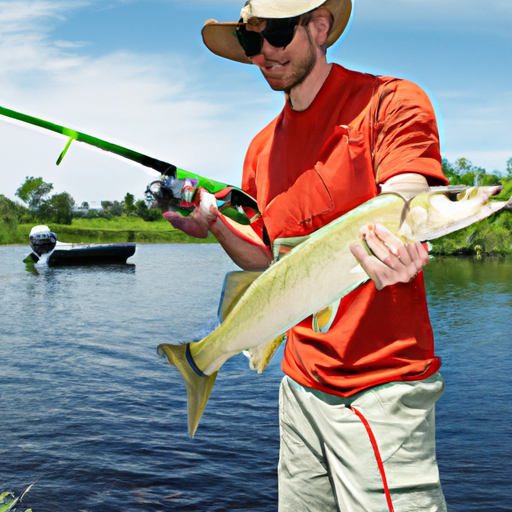
Fishing Techniques and Strategies
Research Targeted Fish Species
To increase your chances of a successful fishing trip, research the targeted fish species in the area you will be fishing in. Understand their habits, preferred habitats, feeding patterns, and the best fishing techniques to use. Knowledge of the species you are targeting can help you choose the right gear, bait, and fishing locations to maximize your chances of catching fish.
Learn Suitable Fishing Techniques
Different fish species may require different fishing techniques and methods. Research and practice the appropriate techniques for the fish species you are targeting. This may include techniques such as casting, trolling, jigging, fly fishing, or bottom fishing. Understand the proper use of fishing equipment and the specific techniques required for each method. Practice your casting and retrieving skills to improve your accuracy and presentation.
Understand Fish Habits and Behavior
Knowing the habits and behavior of the fish species you are targeting can greatly increase your chances of success. Research their preferred water temperatures, feeding patterns, and spawning seasons. Learn about their movements and migration patterns throughout the year. By understanding fish behavior, you can position yourself in the right location and use the appropriate techniques to entice fish to bite.
Study Fishing Hotspots
Identifying fishing hotspots is crucial for a productive fishing trip. Research local fishing reports, online forums, or consult with experienced anglers to find popular or productive fishing locations in the area. Pay attention to factors such as underwater structures, currents, tide movements, or changes in water depth, which can attract fish. Use maps or GPS devices to mark productive spots and return to them during your fishing trip.
Master the Catch and Release Method
Practicing catch and release fishing is important for the conservation of fish populations and the sustainability of recreational fishing. Learn the proper techniques for handling and releasing fish to minimize stress and injuries. Use barbless hooks or debarb hooks to make hook removal easier and reduce harm to the fish. Handle fish gently and avoid touching their gills or sensitive areas. Release fish quickly and carefully to ensure their survival.
Entertainment and Recreation
Books, Magazines, or E-Readers
For downtime and leisure, bring books, magazines, or e-readers to keep yourself entertained. Fishing-related books or magazines can provide valuable knowledge, tips, and stories to enhance your fishing experience. Non-fishing-related books or novels can also be a great way to unwind and relax during your fishing trip.
Board Games or Card Games
If fishing with friends or family, bringing board games or card games can provide entertainment during downtime or inclement weather. Choose games that are portable, durable, and suitable for the group size. Card games like poker or UNO, or classic board games like chess or Scrabble, can be enjoyed by all ages and skill levels.
Fishing-related DVDs or Movies
To immerse yourself in the fishing spirit, consider bringing fishing-related DVDs or movies for evening entertainment. Watching fishing documentaries, instructional videos, or classic fishing movies can be both entertaining and educational. Set up a portable DVD player or use a laptop to enjoy these movies during your downtime.
Binoculars and Bird-Watching Guide
If you have an interest in nature and wildlife, consider bringing binoculars and a bird-watching guide. Binoculars can enhance your experience by allowing you to observe birds, wildlife, and even fish from a distance. A bird-watching guide can help you identify different species and learn more about their behaviors and habitats.
Hiking Gear and Trail Maps
If your fishing trip involves hiking or exploring the surrounding areas, packing hiking gear and trail maps is essential. Bring suitable hiking boots or shoes, comfortable clothing, and lightweight backpacks. Research local hiking trails and obtain trail maps or guides to navigate the area safely. Hiking can provide additional opportunities to explore nature, observe wildlife, and discover hidden fishing spots.
Wildlife Photography Equipment
Capture the beauty of nature and document your fishing adventures by bringing wildlife photography equipment. Whether it’s a digital camera, DSLR, or even just a smartphone with a good camera, having the right equipment can allow you to capture stunning photos of the scenery, wildlife, and your fishing achievements. Consider extra memory cards or portable hard drives to back up your photos during your trip.
With this comprehensive checklist for preparing for multi-day fishing trips, you are now equipped with the knowledge and information needed to plan a successful and enjoyable fishing adventure. Remember to thoroughly research your chosen fishing location, pack all the necessary gear and supplies, and familiarize yourself with the local fishing regulations. By following these guidelines, you can maximize your chances of catching fish, ensure your safety and comfort, and create lasting memories on your fishing trip. Happy fishing!
